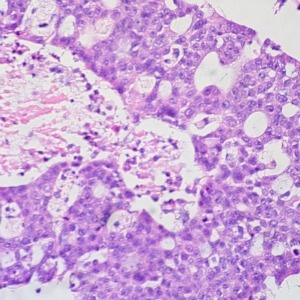Cancer survival is still considerably lower in England than in other countries with similar healthcare systems, despite recent improvements, latest research shows.
The study, backed by Cancer Research UK and published in the British Journal of Cancer, showed that five-year survival for people diagnosed between 2005 and 2009 was between 5% and 12% lower in England than in Australia, Canada, Sweden and Norway.
This was despite faster improvements in survival in England for some cancers, the study’s authors reported.
Overall, the data showed that the gap in five-year survival for all the cancers studied – stomach, rectal, lung, breast and ovarian – between England and the four other countries has closed slightly, falling from 6-10% in 1995-1999, to 5-9% in 2005-2009.
Meanwhile, the improvement in breast cancer survival over this period was greater in England than in any of these other four countries, rising from around 74% to 81%.
However, more recent data for people diagnosed between 2010-2012 in England showed that although average five-year survival had since improved further across all the cancers, it remains lower than for those diagnosed in 2005-2009 elsewhere.
The latest survival data comes after NHS England launched a new cancer strategy aimed at closing the gap in cancer mortality between England and other European countries – with self-referral to chest X-rays and increased GP access to diagnostic tests for cancer part of the drive to boost survival through earlier detection.
However, MPs have criticised NHS England for letting existing standards for cancer waiting times and treatment slip in recent years, despite NHS England chief Simon Stevens insisting this was a ‘mark of success’ in getting more patients referred through the system.
Lead researcher Dr Sarah Walters, from the London School of Hygiene and Tropical Medicine, said: ‘The way England’s cancer survival has improved shows promise, but it’s vital that more is done to ensure England closes this gap and that more people survive cancer for longer.
‘The rapid improvements we’ve seen over the past 20 years have been driven by better investment, measuring targets within the NHS, and developing new ways to diagnose and treat cancer. If we are to improve further it is vital we continue to work on these areas.’
Br J Cancer 2015; available online 4 August

















